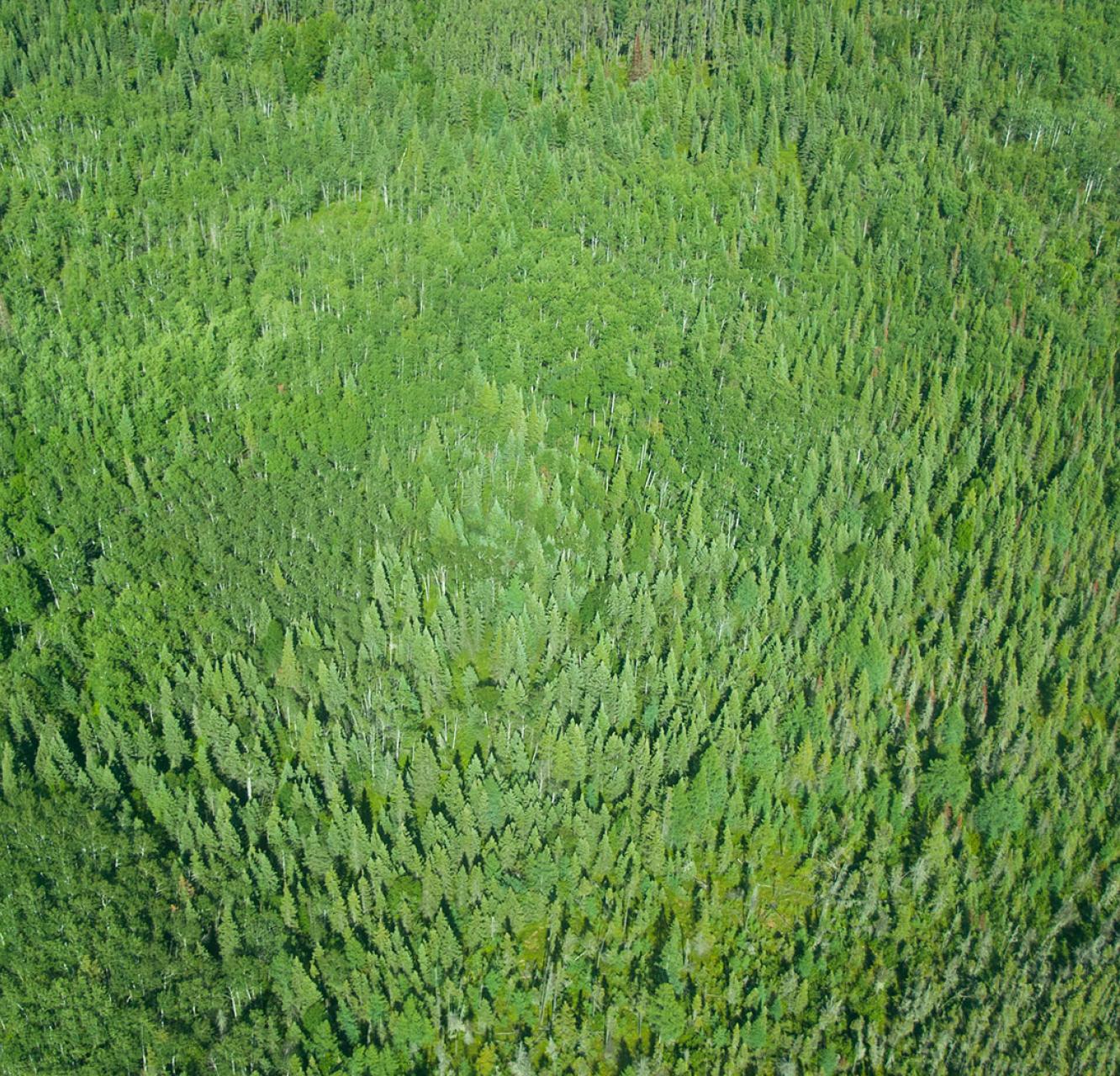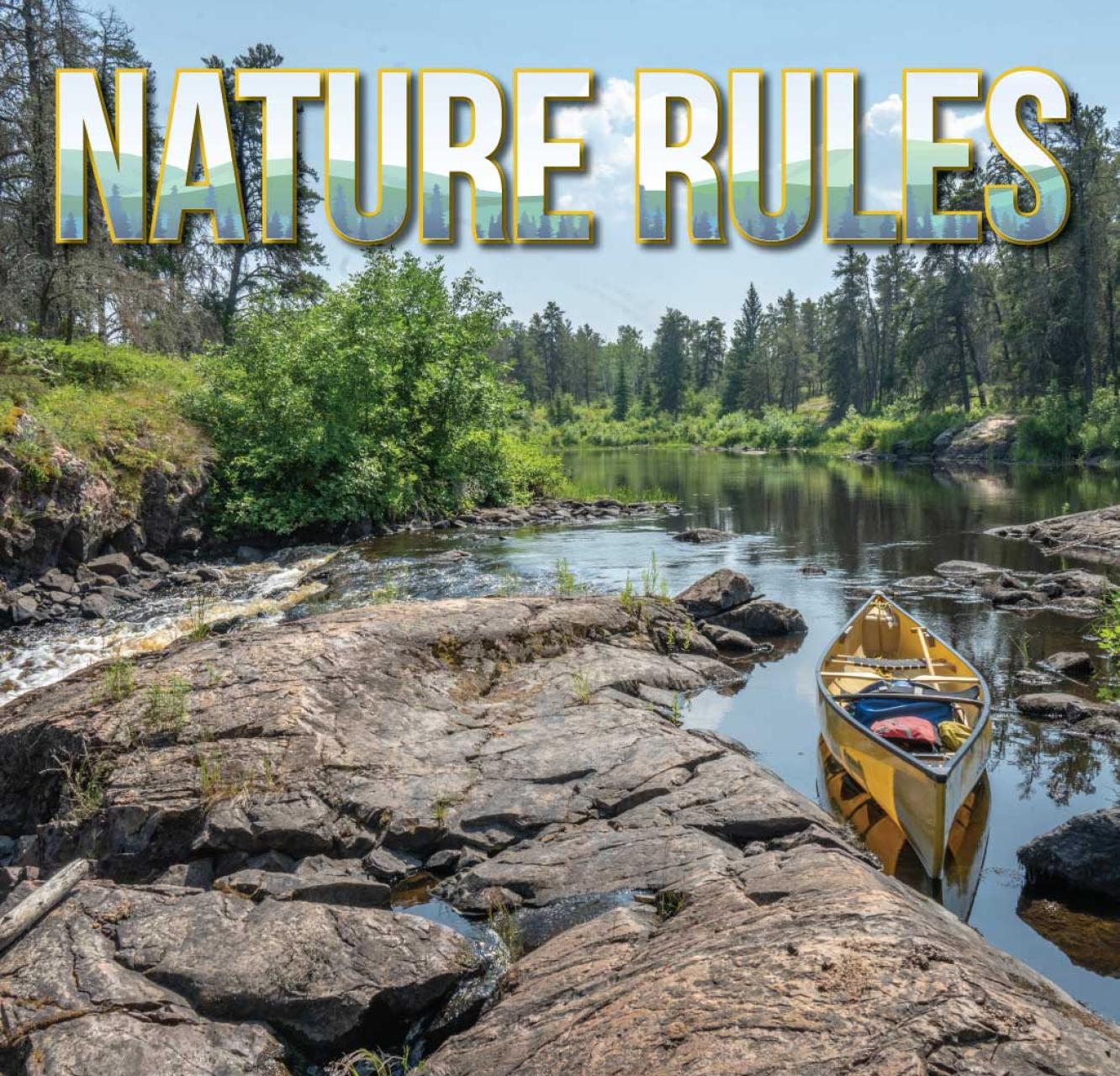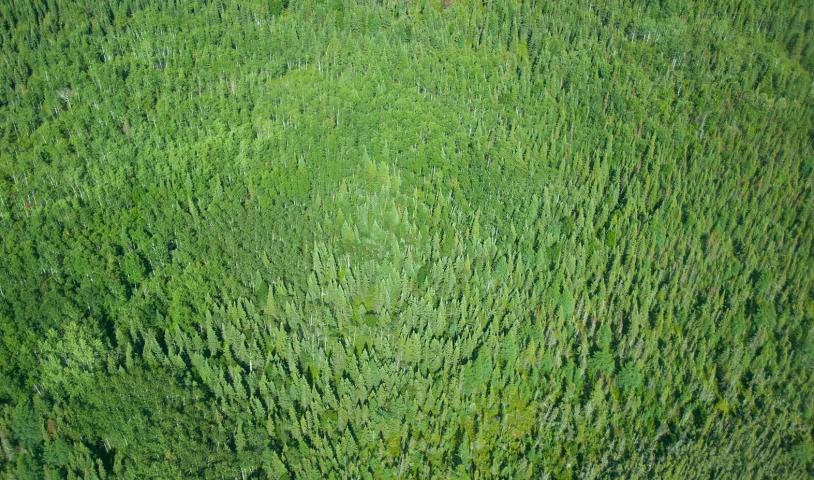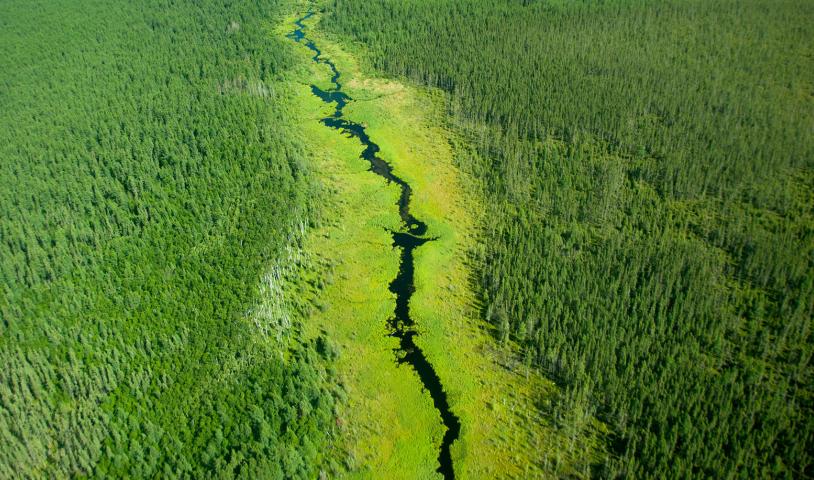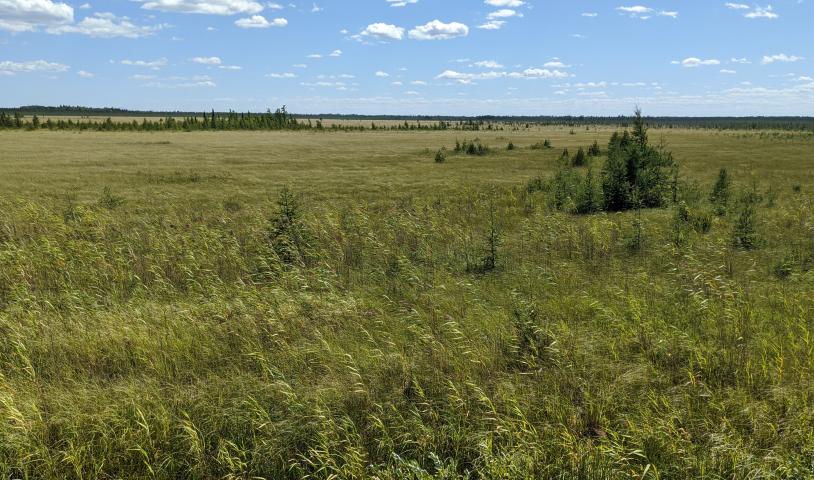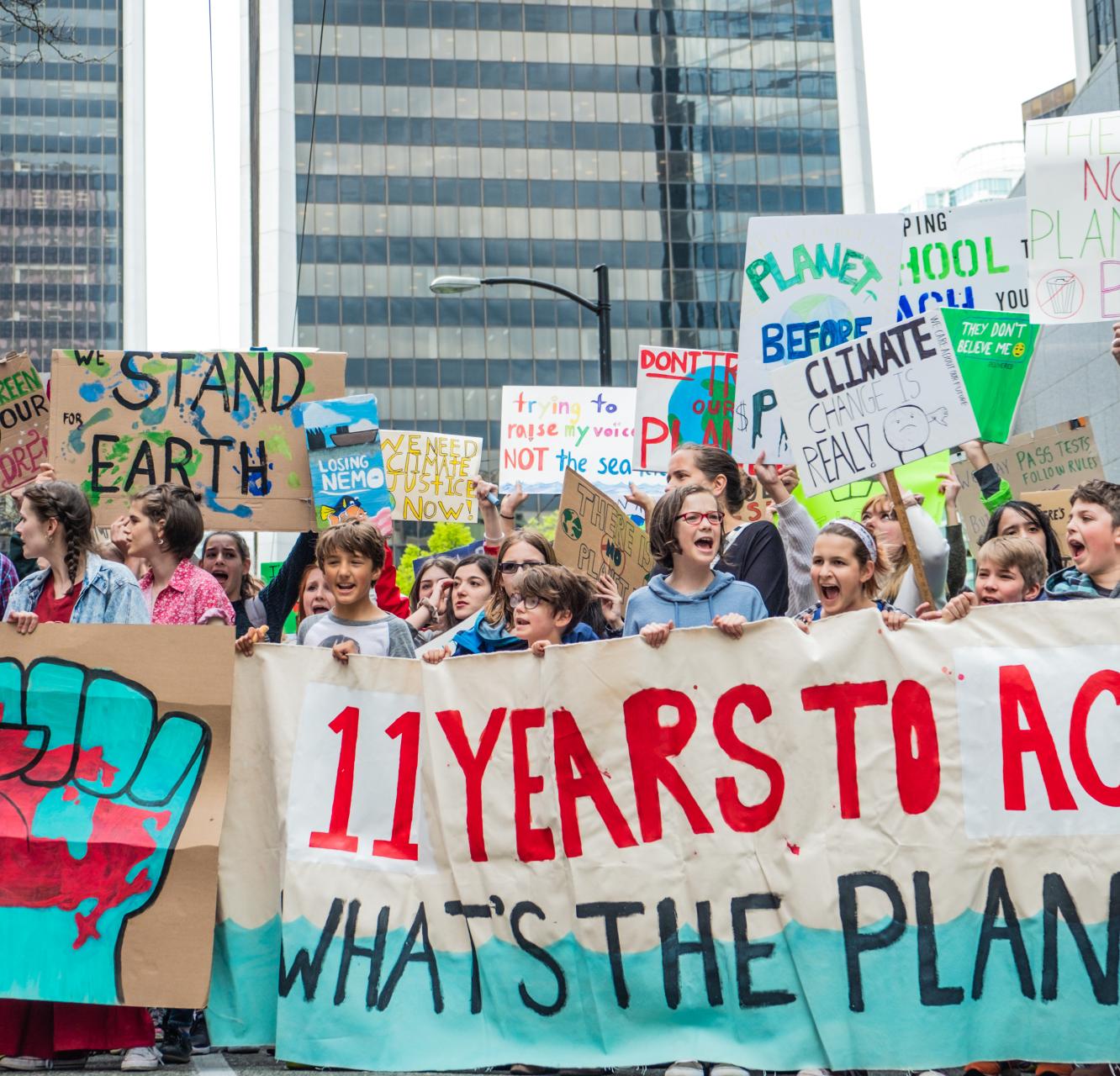Peat Mining
Protect peatlands for nature and culture
Peatlands are wetland superheroes in our fight to stabilize the climate. While all wetlands filter and hold water, peatlands are especially vital because they store an incredible amount of carbon. These carbon sinks absorb greenhouse gases from the atmosphere, helping to reduce the concentration of gases that drive climate change. Beyond their climate benefits, peatlands offer natural flood mitigation, provide crucial habitat for a wide variety of species and are significant to Indigenous Peoples, offering sources of traditional medicines and foods.
Unfortunately, the industrial extraction of peat for gardening additives releases tens of thousands of tons of carbon back into the air each year. To truly combat climate change and safeguard these irreplaceable ecosystems, we must stop all new peat mining operations.
Take Action
Protect Manitoba Peatlands
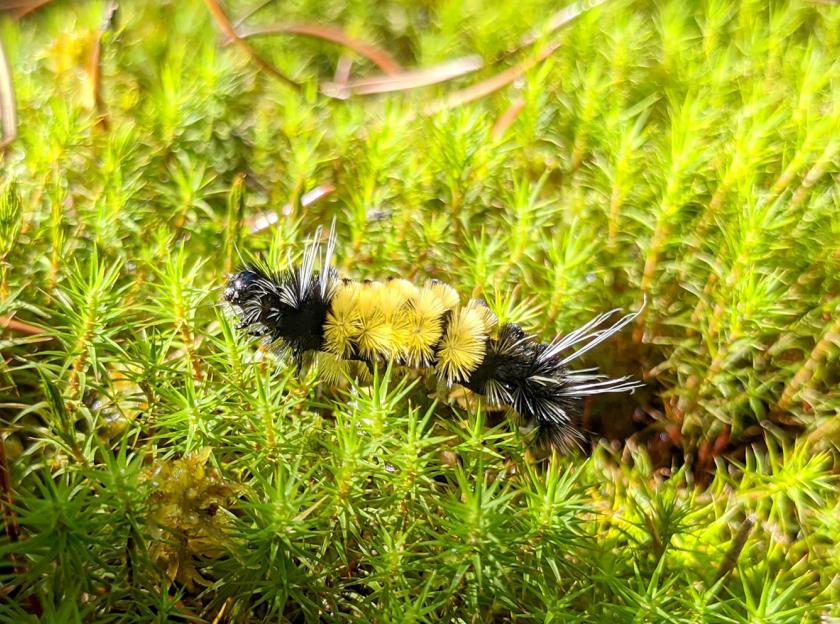
Carbon-storing powerhouses
Covering only three per cent of the land mass, peatlands — incredibly — store 30 per cent of the terrestrial carbon on the planet. In fact, they store such an incredible amount of carbon that preservation of peat is one of the top 10 solutions for fighting climate change. Countries like the United Kingdom and Indonesia are working to restore their degraded peatlands to boost their carbon absorption.
Canada has vast expanses of peat that, fortunately, have not been disrupted or drained to this day. It is our responsibility to preserve them before it is too late.
Peatlands distribution across Canada
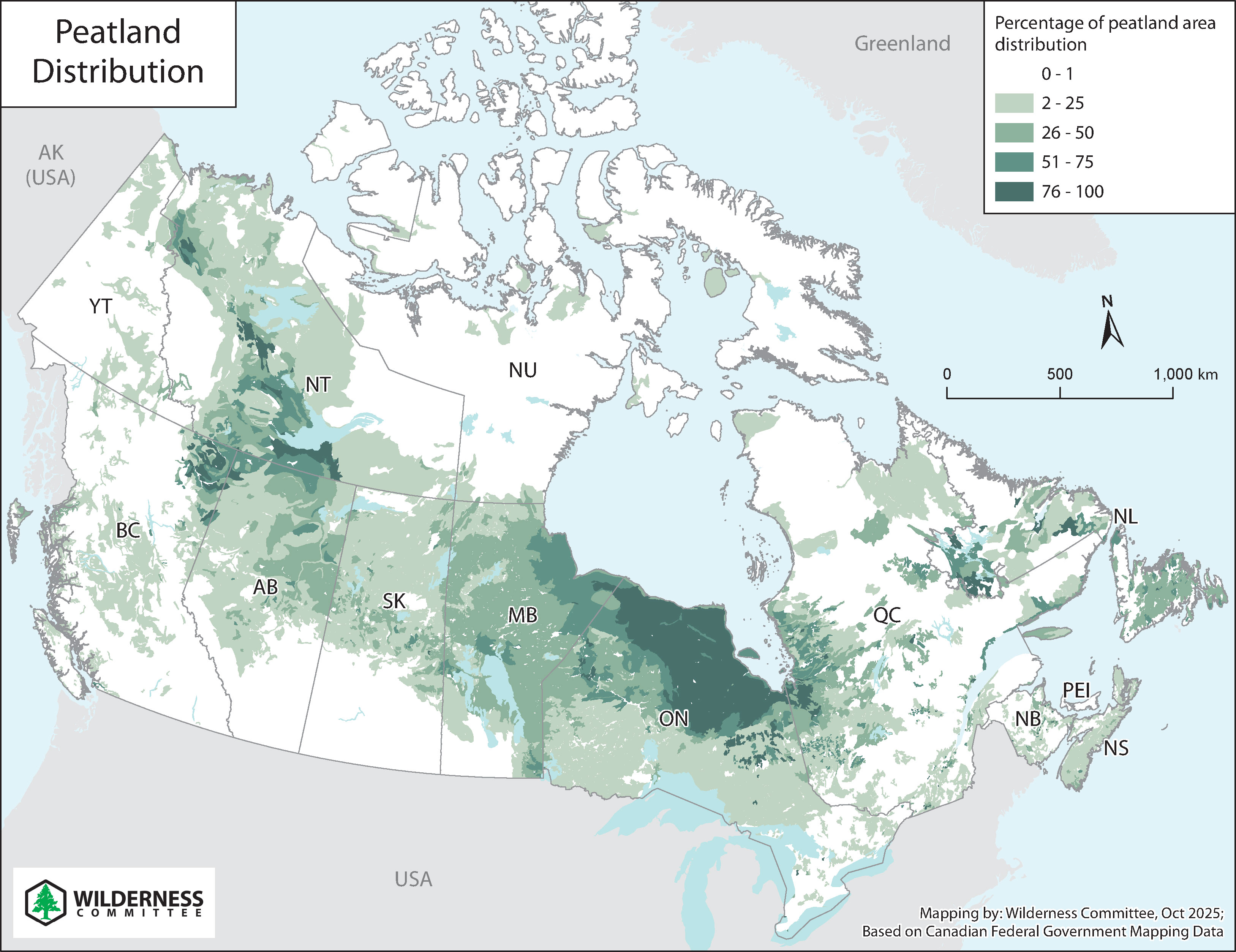
Ugly ecological gems
Peatlands are unique wetlands found across the globe, primarily in the northern hemisphere. They are known as bogs, fens, and sometimes marshes or swamps. Composed mainly of dead and decomposing Sphagnum mosses, these waterlogged environments prevent plant matter from fully decaying, leading to the formation of a carbon-rich, soil layer called peat, which can be several metres deep.
Some peatlands have been forming since the last Ice Age, creating complex ecosystems that support a wide variety of plant and animal species, including songbirds, raptors, waterfowl, moose and boreal caribou. They function as vital migratory stopovers, breeding grounds, and staging areas for hundreds of bird species. As part of the traditional territories of Indigenous Peoples, peatlands have long held immense social and cultural value.
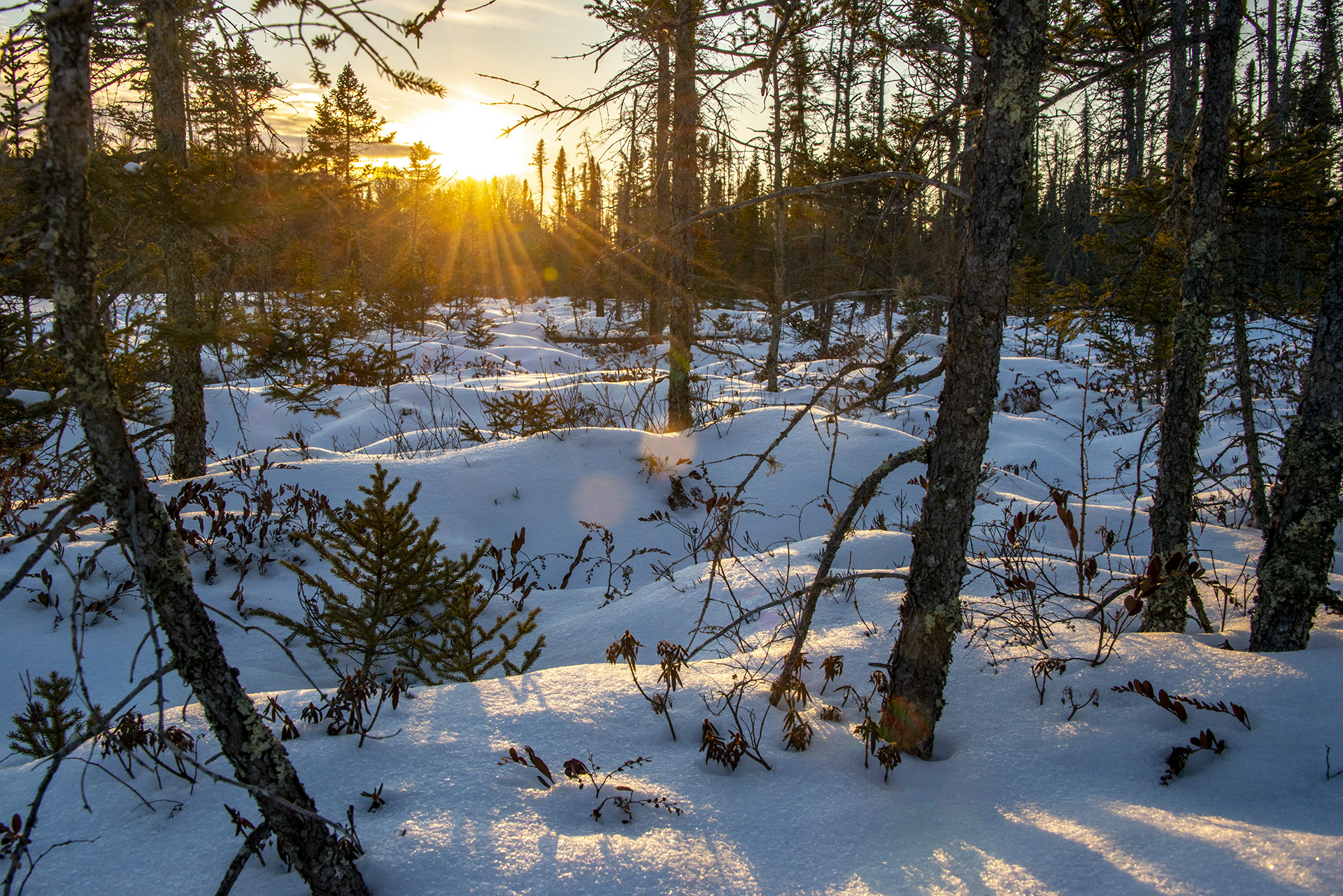
Success in keeping carbon stores intact
The Wilderness Committee's advocacy against new peat mines contributed to the 2013 ban on all peat mining inside provincial parks in Manitoba. We've supported and fought alongside countless communities to reveal the true cost of industry-led projects that threaten water quality and nature.
Now, we’re calling on the government to commit to a new protected area goal that legally protects two-thirds of the peatlands in the country by 2030. This must be done in accordance with the wishes of local Indigenous communities that have stewarded these lands and waters for millennia. We’ll continue to advocate for the preservation of 70 per cent of the peatlands in Canada, aligning with demands from other organizations around the world.
Nature Rules
Peatlands in Manitoba are more vast than nearly any other jurisdiction on the planet. They are the superstars of carbon storage and protect moose and boreal caribou from predators. Read Nature Rules to find out how preserving peatlands can help protect the climate while we solve the biodiversity crisis.
Campaign Gallery
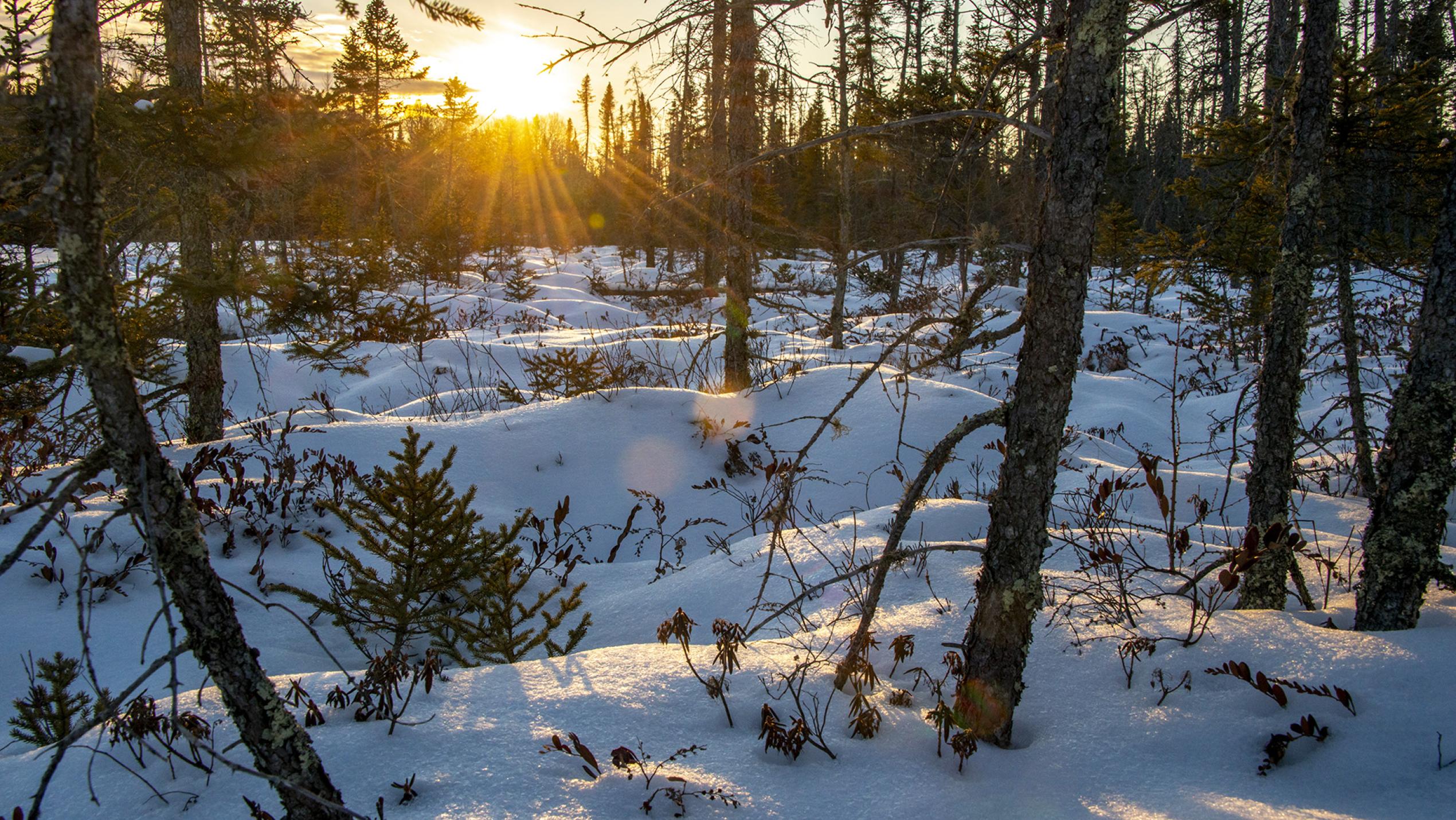
Check Out More Updates
Join Us
Don’t miss your chance to make a difference. Receive campaign updates and important actions you can take to protect wildlife, preserve wilderness and fight climate change.

